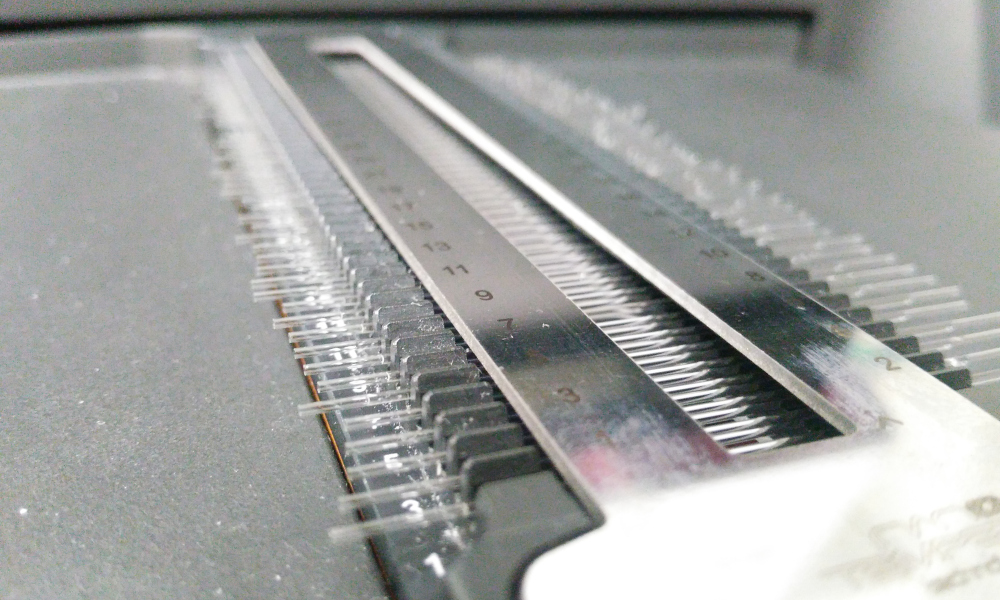
Structural biologists, including those at EMBL Hamburg, want to study proteins at the atomic level. This is a tricky task, as it requires a stable protein in high concentration. The device shown in this Picture of the Week is essential for this.
Using this vital tool, a high-throughput UV fluorimeter, scientists can study the stability of proteins by gradually heating them up and analysing their ultraviolet fluorescence. The signal changes when proteins unfold, and stable proteins require more heat to become unfolded. The protein samples are loaded in up to 48 thin glass capillaries to enable recording of ultraviolet fluorescence.
The beauty of this tool is that you can test a variety of conditions by consuming only minuscule amounts of the protein sample. Furthermore, the recorded signal is not sensitive to most components that scientists add to the protein samples. This is an important advantage for studying membrane proteins, which are usually the most challenging targets in structural biology research. Also, the machine and the accompanying software are very well designed, so people can master the technique within only a couple of minutes.
Credit: Vadim Kotov/EMBL
This article was first published on EMBL News
